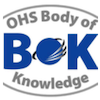Chapter 5: Global Concept: Safety
Abstract
This chapter discusses workplace safety by considering four questions: Is human error a cause of workplace accidents or a consequence of trouble deep within an organisation? Is ensuring compliance with rules and procedures a sufficient or limited approach to safety?; Is safety more appropriately conceptualised as an absence of negatives or the presence of certain capabilities?; and Is workplace safety best addressed at the level of components or systems? Reference is made to relevant literature underpinning the polar positions inherent in these questions. What qualifies as ‘best practice’ in safety may depend on where people or organisations position themselves (implicitly or explicitly) between these opposing viewpoints. OHS needs to be based on an understanding that not all workplace safety is created similarly. Being open to fresh perspectives is critical to fostering diversity of viewpoints and methods.
Keywords: safety, human error, organisations, work, system
First year of publication: 2012
Current Version: 2019
Chapter 5: Global Concept: Safety
Table of contents
| 1 | Introduction |
| 2 | Is human error a cause or consequence? |
| 3 | Is compliance with rules a sufficient or limited approach? |
| 4 | Is safety best conceptualised as absence of negatives or presence of capabilities? |
| 5 | Is safety best addressed at component or system level? |
| 6 | Summary |
References

Professor Sidney Dekker, PhD
Director, Key Centre for Ethics, Law Justice and Government, Griffith University
Sidney gained his PhD in Cognitive Systems Engineering from Ohio State University. He has been Professor at Lund University, Sweden; a Senior Fellow at Nanyang Technological University, Singapore; and Visiting Academic in the Department of Epidemiology and Preventive Medicine, Monash University. His research interests include system safety, human error, reactions to failure and organisational resilience, and he has authored several books on these topics.
No learning outcomes have been developed for the chapters considered introductory or underpinning knowledge (that is chapters 2, 3, 4, 5, 6, 7, 8, 14, 15.)
Published 2012 Global Concept: Safety

